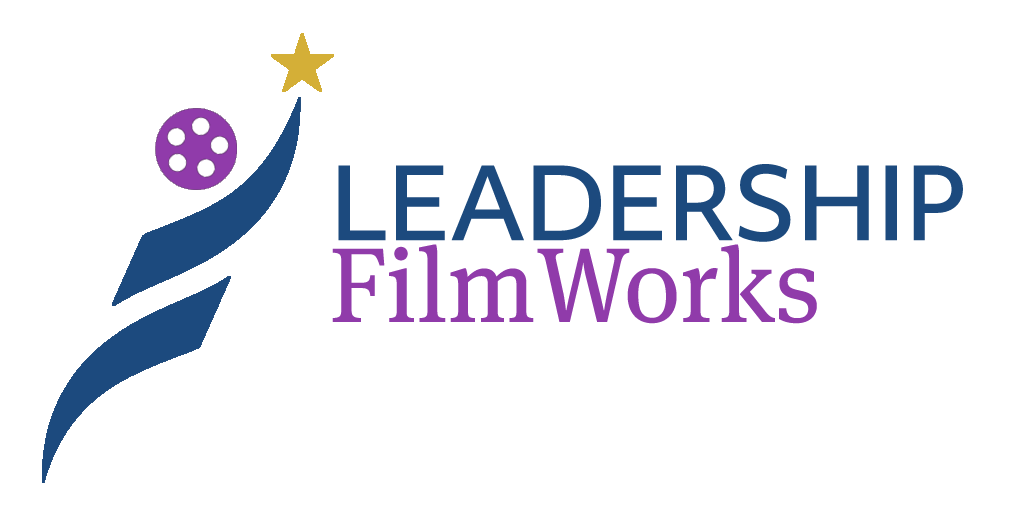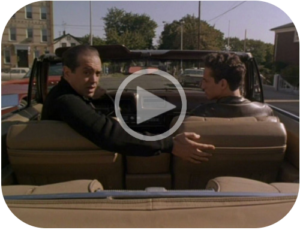There’s a terrific scene in the film “A Bronx Tale” where a mob boss gives a teenage protégé advice about girls: “You gotta do what your heart tells you to do. Let me tell you somethin’ right now. You’re only allowed three great women in your lifetime. They come along like the great fighters, every ten years. Rocky Marciano. Sugar Ray Robinson. Joe Louis. Sometimes you get ’em all at once. Me? I had my three when I was 16. That happens. What are you gonna do? That’s the way it goes, you know? Tell you right now. See this girl? Maybe this girl, she put wind in your sails. Maybe she’s your first great one.”
Same thing with leaders. I’ve had the good fortune of working for a bunch of effective bosses over the years. However, if we’re lucky, we may get a great one. My great one was Paula Fairley. She saved me.
I was fed up working for an abusive lunatic in the operations department of a mortgage banking firm. After being beat down and bullied for two years, my nerves were shot and I was getting ready to leave the company without a job waiting for me. Luckily, Paula, who I barely knew, saw something in me and asked me to transfer to Human Resources to recruit mortgage folks for 6 months. My response was “Why would I ever want to work in HR? What do you guys do there anyway?” She forgave me and piqued my curiosity by explaining all that is involved in the mysterious world of HR. I did what my heart told me to do and after my first month working for Paula, I knew HR was for me. Leaving the dark ages, I stepped into a great enlightenment, my Renaissance.
Life Enhancing
Working for Paula was not only a career changing experience, more importantly it was life enhancing. Unbeknownst to her, I couldn’t wait for our daily 1:1 meetings because I would always walk away a little smarter, a little more curious about life, and feeling more confident. I felt as if I was being baptized (she encouraged debates, so, at times it felt like baptism by fire) with her wisdom. And just as important, after feeling so down in my previous situation, I began feeling good about myself. She put wind back in my sails.
Paula took the time to mentor me so I could better understand the important elements of HR and, more importantly, people who come from various walks of life. Paula taught me about oppression as a model in our society (one group is “up” and one stays “down”). I came to understand that as a white, straight man, I never had to even think about what is was like to walk around in my skin because in our society, these three characteristics are “up” and unconsciously acceptable. An invaluable realization, conversely, was that being a person of color, gay, or a woman navigating the corporate world (and the broader world) requires more thought and carries more risk. I learned about the damaging, long-term effects to individuals, corporations, and to society caused by systemic racism, sexism, ageism, and homophobia.
Paula had at least two rare combinations: she was both kind and fearless; she was both brilliantly innovative and tenacious when executing ideas. She never initiated a fight in work, but, she never backed down from anyone, including senior management. I always viewed her as a combination of Muhamad Ali and Michelangelo. She always floated like a butterfly, but could sting like a bee. She had the creative soul of an artist and could implement her vision. And no matter what I learned from Paula, without her ever having to whisper what was expected, I knew that I had a responsibility to help others in my HR role. This is what the great ones do: they teach and they inspire. They put wind in our sails.
What’s the connection to film and learning?
It has to do with leaders watching other known leaders on film. A few years ago my team conducted a global experiment with 339 participants in ten cities around the world. The experiment used film to support three important messages for groups of participants and no film for the same important messages for other groups.
Immediately after the workshops, participants completed a quiz asking them to list, based on memory, the important messages from featured leaders. In every instance, the scores coming from people managers who watched films of leaders delivering the messages show a statistically significant difference (higher) score boost compared to individual contributors (non people managers) who watched the same films.
Why do you think this happened?
I believe that the people managers’ higher recall scores with the three films featuring leaders may be related to their ability to naturally develop an emotional connection that is deeper than the individual contributors’ emotional connection. S.B. Merriam’s book Learning in Adulthood: a Comprehensive Guide suggests that learning activities express cognitive, emotional and social dimensions, which resonate with learners. The workshop’s learning activity of showing films that featured leaders provided an emotional and social connection that was deeper for the people managers than for the individual contributors.
This leader effect occurred because of the people managers’ ability to relate to the leaders appearing on the film due to their managerial responsibilities and because a higher percentage of the people managers, compared with individual contributors, have come in direct contact with the five leaders appearing on the three films.
Total Recall: Pedagogical and Life Implications
This “Leader Effect” informed the development of my “Total Recall” approach to leadership development and is now one of its four tenants. In fact, it’s integral to my coursework. Learn more about Total Recall here.
So, if you’re a training manager and you plan to use film, consider featuring known leaders in your organization who are respected. Preferably, those who are known to be one of the great ones.
I’m still not sure why Paula invested so much of her life knowledge in me. She probably felt sorry for me, maybe she believed in me, perhaps she wanted to improve at least one person in the world. Whatever the reason, I am forever grateful to Paula for helping me develop a deeper level of empathy which made me a more effective HR professional and, hopefully, a better person. As for leaders, she was my great one.
* * * * * * * *
Leadership FilmWorks is a leadership development firm that uses the synergy of creative technology, film, and storytelling to inspire, teach and develop leadership. Incorporating Dr. Douglas Clayton’s groundbreaking “Total Recall” approach to training, our program upskills your leaders to manage their teams and responsibilities through changing times, facilitate a productive and engaged environment in the virtual workplace, retain talent, build strong teams, and stay competitive. If you’re interested in learning more, contact us to set up a free consultation.


